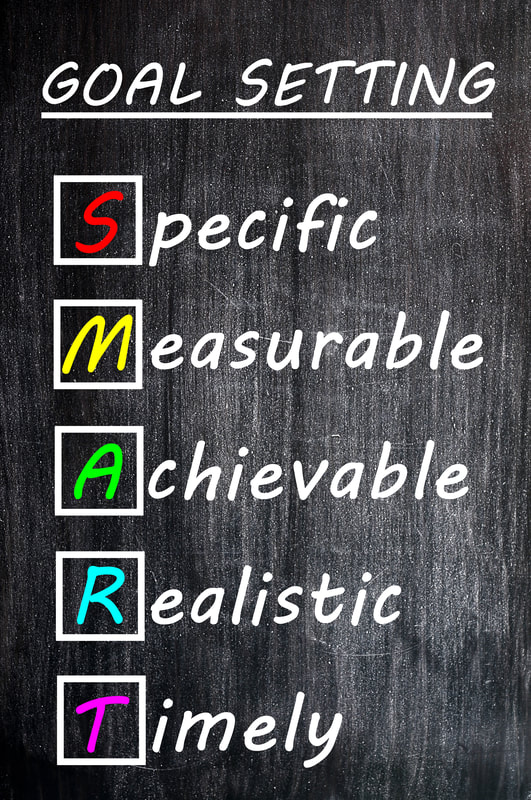Writing is a horrible, exhausting struggleSome days, writing is beautiful, but I’m not giving away a deep dark industry secret when I say that writing is hard. George Orwell said, “Writing a book is a horrible, exhausting struggle, like a long bout with some painful illness. One would never undertake such a thing if one were not driven on by some demon whom one can neither resist nor understand.” Do not resist the writing demon. Instead, realize that the struggle is worth it. Venus Williams experienced many challenges in pursuit of tennis greatness, but when asked about the struggle, she said, “I don’t focus on what I’m up against. I focus on my goals and try to ignore the rest.” Writers should do the same. The publishing industry often seems stacked against the average writer, something which we cannot control, but we can control our thoughts, our actions, and our goals. Goal setting matters because it is easy to get demoralized on the writing journey. Goals give us focus when we’d rather crawl under the bed to hide from the writing demon. BrainstormWriting successes or failures are often a direct result of goals, so make sure that your goals reflect the passions, themes, and ideals you brainstormed in Day 1. Don’t follow trends. Follow the yearnings of your writing soul and create smart goals. On specificity Are the goals you’re working toward specific? One of my earliest goals was to write 2 novels in one year. No matter that I hadn’t finished my first novel (outside that high school novel we won’t discuss). No matter that I didn’t specify the type of novel, how long it would be, what genre, what publisher, what audience. I just wanted to write two novels. You can imagine how un-successful that year was for me as a writer. On measurability All we can do is control the work. I can measure my word count, my page count, my number of queries or submissions sent out, but I cannot measure my success in the query process, because I can’t control the editors and agents on the other end who may choose not to respond positively. You can dream of being a best selling author, but you certainly can’t control or measure that (except through numbers of book sold on a given day, which is—once again—outside your control). When you make goals, make sure that you can measure success. Choose goals that you can measure like 500 words a day or 2500 words a week. Something you can measure in your day-to-day writing. On achievability If you watched my video in Day 1, you heard me say that smart goals may not be in our creative best interests, but really, I mean that goals should focus on what you can achieve. If you’re working three jobs and going to school, you may have the heart for writing, but you don’t have the time to achieve 3 books in 12 months. An additional and more salient point is that our creativity does not punch a time-clock. Putting arbitrary or unrealistic goals onto our creative psyches may do real damage, so make sure you’re setting goals that your creative self can meet. Otherwise, you’re asking for a block. On reality Proper goals should be realistic. That means knowing and understanding the industry so you don’t have unrealistic expectations. For instance, saying you are going to publish 3 books this year is not in your control if you’re seeking traditional publishing, which takes 12-18 months per novel to get through the publication process. While 3 books is specific and measurable, it is definitely outside the confines of individual control. It is technically realistic if you’re Indie publishing, but focus on your first book before you give yourself a heart attack.
On timeliness Goals are dreams with a deadline. There is a difference between “I will be a published writer one day” and “I will write 80,000 words in 2023.” The first one has no deadline. That second one is specific, measurable, achievable given my writing schedule, realistic because I’m focused on what I can control, and it’s timely. It has a deadline. Notice as well that the first item, I will be a published author one day, is actually written in passive tense, which is a big no-no in the world of writing, plus it’s essentially saying to yourself that you are a passive writer when you want to be an active writer. Day 2 HomeworkDetermine your top three goals for your writing journey. Try to create a mix of short-term goals and long term goals. Know what you will do in the next few year, but also think ahead to 3-year and 5-year goals.
For example, a short term goal might be to write 2,500 words this week. A related long-term goal might be to finish an 80,000 word manuscript this year.
Looking ahead On day 3, we will focus on breaking your goals into achievable micro-actions, so today, just focus on the goals. Comments will turn on for day 5. Comments are closed.
|
AuthorCindy Skaggs is the author of nine books, multiple creative nonfiction essays, memoir, and short fiction. She teaches undergraduate and graduate writing. ArchivesCategories |


 RSS Feed
RSS Feed